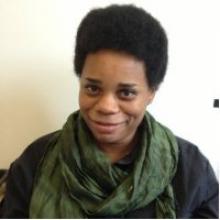 Lauren Hudson is s a collective member of SolidarityNYC--an organization dedicated to promoting and supporting New York’s Solidarity Economy. Lauren also serves on the board of the Data Commons Cooperative and is a Cooperative Finance Leader for America Fellow at the National Federation of Community Development Credit Unions. Her interests include participatory action research, human geography, and Patrick Stewart. She lives in Crown Heights, Brooklyn.
Lauren Hudson is s a collective member of SolidarityNYC--an organization dedicated to promoting and supporting New York’s Solidarity Economy. Lauren also serves on the board of the Data Commons Cooperative and is a Cooperative Finance Leader for America Fellow at the National Federation of Community Development Credit Unions. Her interests include participatory action research, human geography, and Patrick Stewart. She lives in Crown Heights, Brooklyn.